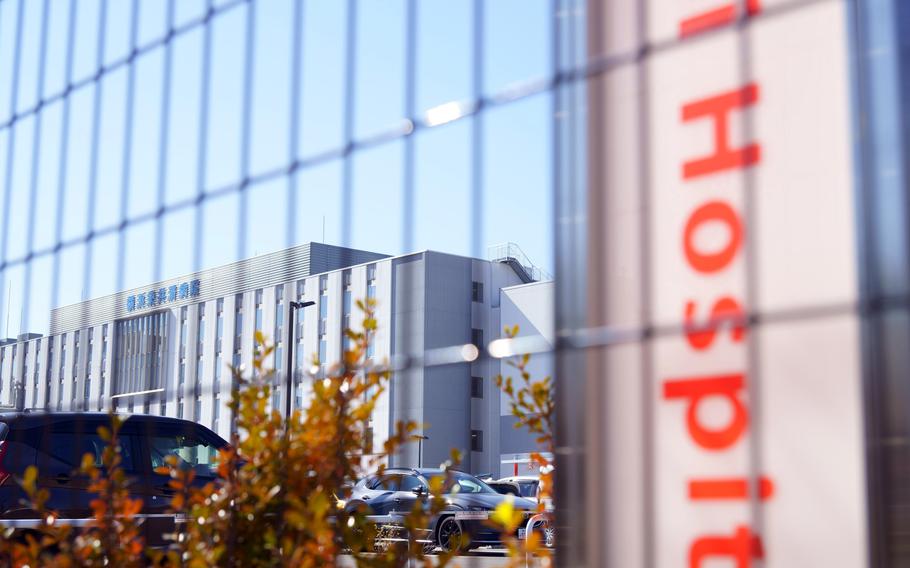
A pilot program from the Pentagon aims to assist Defense Department civilians with navigating Japan's health care system. (Akifumi Ishikawa/Stars and Stripes)
New Defense Department efforts to improve health care access for civilian employees in Japan and Guam are underway, but it’s too soon to tell whether they’re working, according to a federal watchdog.
The Government Accountability Office, in an April 3 report, said thousands of U.S. civilian employees and contractors across the Indo-Pacific face persistent obstacles to obtaining medical care, despite their crucial role in supporting military missions in the region.
“DOD relies on thousands of federal civilian employees and contractors in Japan and Guam to accomplish its missions,” the report states. “However, these individuals face unique challenges accessing health care.”
Japan is home to approximately 14,600 U.S. civilians and contractors, many of whom have reported barriers such as language difficulties, complex billing systems, different standards of care and a confusing emergency response network.
To address those concerns, the DOD launched several initiatives over the past year, including a “Japan Access to Care” working group that began meeting monthly in April 2024 and a new “pre-hire statement of understanding” to inform job candidates about local health care limitations.
The department also started a pilot program in Japan to assist with scheduling appointments, translation and payment support. At Camp Zama, the home of U.S. Army Japan near Tokyo, a health care liaison and translation service has been active since October 2023.
DOD is also working to expand mental health and emergency care access, the report states.
The Japan Civilian Medical Advocacy group, which formed in response to the crisis, welcomed the GAO’s findings but cautioned that real change has yet to be seen.
The report did not make any recommendations to further address the situation.
“While JCMA is heartened by GAO’s acknowledgment of these longstanding issues, we agree it is still too early to determine whether the DOD’s current initiatives will adequately overcome the healthcare barriers,” the group said Tuesday in a statement on Facebook.
The group called for continued oversight and consistent outreach to civilians covered by the status of forces agreement, spokeswoman Randi Wilson said via Messenger on Monday. SOFA outlines the rights and responsibilities of individuals in Japan with the U.S. military.
Meanwhile, on Guam, where the entire population faces health care shortfalls, DOD civilians contend with a shortage of providers and decaying infrastructure. The island’s only public hospital, Guam Memorial, is in “a state of severe disrepair,” the GAO reported.
Guam is considered a medically underserved and maternity care shortage area by the Department of Health and Human Services. Its remoteness — about 1,600 miles from Japan or the Philippines and 3,800 from Hawaii — compounds the problem.
In response, the DOD last fall awarded a $2.7 million grant to upgrade the hospital’s aging HVAC system. Officials also said a new military medical facility is expected to open this fall at Marine Corps Base Camp Blaz — but it will serve only active-duty service members.
A 2023 DOD proposal to lease land for a new public hospital fell through, the report said. Guam’s government is now pursuing the project independently.